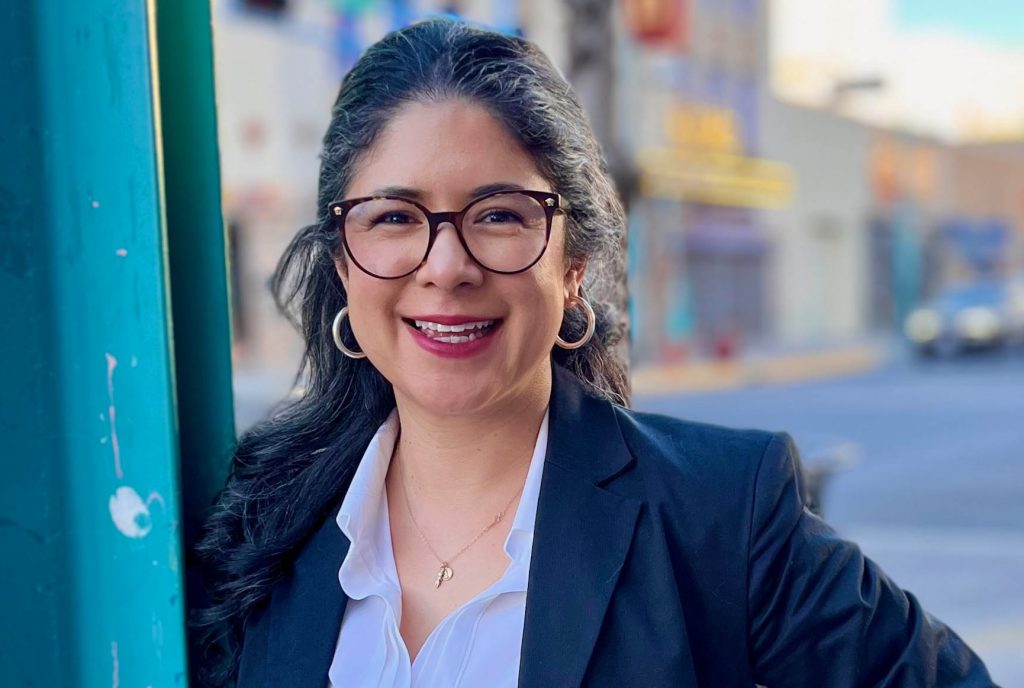The New Mexico State Legislature passed a COVID-19 relief bill that would provide over $300 million in relief provided by the federal CARES Act in a very short special session that lasted less than eight hours.
The bill included $194 million to provide $1,200 for those who qualify for unemployment and lost work because of the pandemic. It also would provide $100 million in grants to local small businesses and nonprofits, with smaller amounts to provide aid for rent and mortgage payments, money for COVID-19 testing, contact tracing and vaccine rollout and money for households that did not receive federal stimulus money earlier this year.
Update: Lujan Grisham signs COVID-19 relief package into law
The bill ultimately passed with widespread majorities in both the House and Senate, though many legislators voiced concern about the proposal and said they wished they had more input. Only one amendment to the introduced legislation passed, one that would include 501(c)8 organizations to be eligible for funds.
Because the bill is a general appropriations bill, the funds would be immediately available.
It was the money for unemployed New Mexicans that had the most debate on both sides of the Roundhouse on Tuesday.
House passes after contentious debate over rules
After hours of debate, the House passed the bill on a 59-11 vote.
In the House, like the Senate, Republicans squared off with Democrats over whether some of the relief package should go to essential and frontline workers who are still employed and make less than $15 per hour. Rep. Rebecca Dow, R-Truth or Consequences, introduced an amendment that would have provided frontline workers with $600 and reduced the amount that unemployed individuals receive by $600. Through hours of debate, Republicans expressed concern for workers putting their health, safety and possibly lives on the line for less than $15 per hour. Democrats praised the idea, but urged Dow and other Republicans to bring the issue up during the upcoming regular session in January.
At one point during the debate, Speaker of the House Brian Egolf left his speaker’s chair to add his thoughts on the House floor. He told Dow that he agreed with the sentiment of her amendment, but that there is not enough time to implement it properly. He said if not handled properly, the money in question may not make it to those essential workers and those who are unemployed would get a smaller check.
“To me this amendment is not about the worthiness of what you’re trying to do. I agree with you 100 percent that we need to help and do more to support these essential workers, I agree with you,” Egolf said. “I think everyone in the Legislature agrees with you. Generally, the problem is if you don’t get this program exactly right, you’re going to be taking $600 away from every unemployed claimant in the state, putting into a pot and hoping it makes it to the place where we want it to go.”
Rep. Javier Martínez, D-Albuquerque, told Dow that he thought her amendment was “well-intentioned,” but badly timed. He said he hoped Dow would not only bring the issue up in January, but also join him and other House Democrats in pushing for mandatory paid sick leave.
“This is not the time for that, however. The time is going to come in January,” Martínez said. “We risk not only losing money that’s already been given to us by the feds, but the reality is we are taking money from people who literally have no paycheck right now because we have to shut down the economy because this virus is out of control.”
While the debates back and forth showed a divide between parties, the real contention erupted after Democrats moved to stop debate and Egolf tried to move on without the body voting on Dow’s amendment. It’s been common practice for years that the majority party in the House ends debates after three hours, which is allowable by House rules. Egolf told the body that those House rules, besides allowing debate to stop, also allowed the body to move on without voting on an amendment. In past sessions, the body generally voted on an amendment before officially ending debate and voting on a bill.
Republicans clearly took issue with Egolf’s ruling and some members began interjecting comments about the rules. But Egolf continued on and took a vote on the bill.
Rep. Jason Harper, R-Rio Rancho, who is usually mild mannered in debates, expressed his extreme frustration with Egolf while explaining why he voted for the relief package.
“Since we’re throwing the rules out and just using them when we would like, I’ll explain myself now and then vote,” Harper said, over Egolf’s repeated call to quiet him. “Mr. Speaker, you have made a mockery of this body and of the rules. You are choosing to use the rules that you want and I’m choosing to use the rules when I want. Mr. Speaker, I am disgusted with you and how you run this body. There was nothing wrong with going to closing remarks by Representative Dow and voting that and then voting on the bill. But you again are a bully and use that chair to see your whims. I vote yes. Thank you.”
After another lengthy discussion and consultation with the Legislative Council, Egolf opted to reverse his decision and allow a vote on the amendment and a new vote on the bill. In the original vote, 14 Republicans voted against the bill and the second time around, 11 voted against it.
Rep. Bill Rehm, R-Albuquerque, was one of the 11 Republicans who voted against the bill. After the vote he explained why.
“I don’t want this ‘no’ vote to be construed that I’m not sensitive to supporting our unemployed workers,” Rehm said.
But, he added, he viewed the bill as encouragement for workers to stay home and collect unemployment benefits worth more than their regular pay.
“This legislation did not reward those workers who stayed at work,” Rehm said. “And who we’re talking about is gas station attendants, grocery store workers and medical staff. Then I have business owners contacting me and telling me that they have workers who won’t come back to work because they’re making more money on unemployment. And it’s a shame that the amount of money is discouraging them from returning to work.”
House Republican Whip Rod Montoya of Farmington also voted against the bill and said it was because, unlike the last relief package the Legislature passed, the bill did not include requirements for businesses to show they’re business was impacted by COVID-19.
“So the big problem I have with this is the lack of folks to show need,” Montoya said.
Senate debate
The Senate voted 33 to 5 with four state senators recusing themselves, just minutes after the legislation passed the House. The Senate previously debated an identical bill—and also spent over an hour debating the amendment to take money aimed at the unemployed to those who are essential workers.
State Senator Gabriel Ramos, D-Silver City, introduced the amendment and state Senator Candace Gould, R-Albuquerque, cosponsored it. Both will not return to the Legislature in January after losing elections this year.
Ramos argued that it would be a “thank you” to essential workers who make less than $15 an hour for showing up and putting their lives on the line during the pandemic.
But Department of Workforce Solutions Secretary Bill McCanley said that the state would need money to establish a program to get the money out to the essential workers and, with no program set up yet, that would take about a month to establish.
The money, provided through the federal CARES Act, has to be spent by December 28 or it reverts to the state’s Unemployment Insurance general fund.
There were other concerns, including that a definition of an “essential worker” was not clear. State Sen. Daniel Ivey-Soto, D-Albuquerque, said he went back and looked through the governor’s public health orders and found that the orders define essential businesses but there is no definition for an essential worker. While different state senators talked about health care workers as essential workers, Ramos labeled essential workers as those employed who provide every day services to keep the economy running.
“Nursing home workers, child care workers, field workers, grocery store workers, gas station, convenience store workers. They provide great services we enjoy every day and they don’t complain about it because they need that paycheck,” he said.
State Sen. Antoinette Sedillo-Lopez, D-Albuquerque, said the Legislature needs to keep these people in mind when the 2021 Legislature convenes and consider things such as raising the minimum wage and providing health insurance.
After the bill passed the Senate, state Sen. John Arthur Smith, D-Deming, made a final speech from the Senate floor, and said that there was a great debate on the Senate floor and that special sessions work well when there is agreement between the executive branch and the legislative branch and he seemed to imply that that was lacking for this special session.
Smith is the outgoing chair of the Senate Finance Committee. Smith lost in a Democratic primary to a more progressive Democrat, but a Republican won in the general election.
“I’m just the messenger. I hope there were lessons learned. There were suggestions not accepted on the bill that were good, even great suggestions. When the fourth floor (the governor’s office) has a special session they damn well better have an agreement on the special session,” Smith said.
After the special session, Gov. Michelle Lujan Grisham praised both the Senate and House for coming together during a holiday week to make sure New Mexicans did not lose the federal funds. While she called the Legislature into the special session and laid out what she wanted to see happen, Lujan Grisham said it was inaction by the federal government that caused lamakers to have to meet.
“Because the federal government and Congress have failed to act, the New Mexico state Legislature, working with my office in a bipartisan fashion, has crafted a mechanism to make sure New Mexicans who have real issues about keeping food on their table, a roof over their head, have some economic stability in the next several weeks,” Lujan Grisham said.
The Legislature will meet again in January for a 60-day session and all issues will be on the table.
Matthew Reichbach contributed to this story.

















